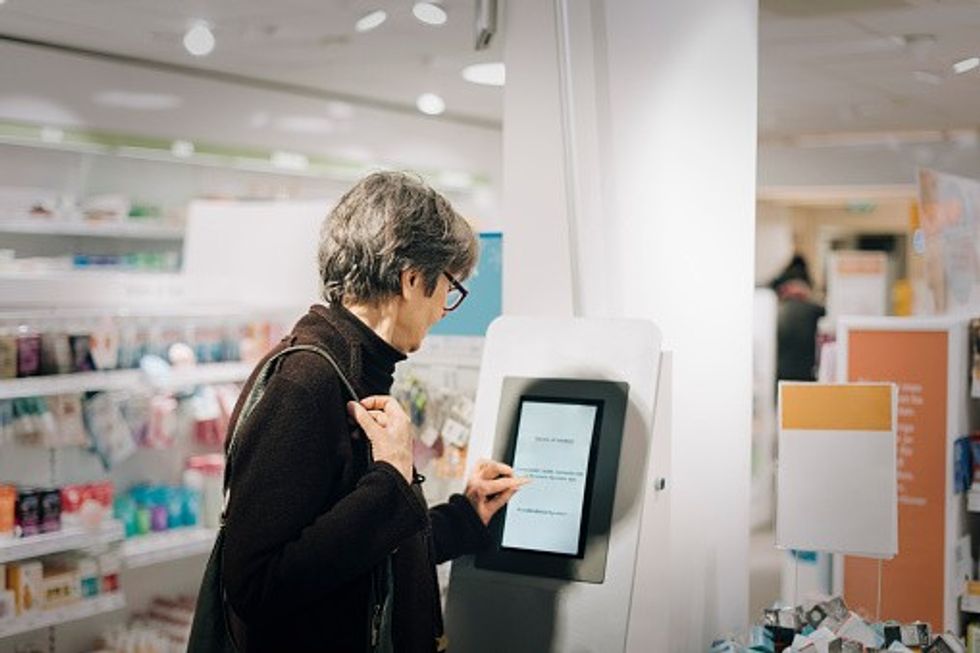In these Covid times communities are concerned about how to increase their immunity and protect themselves from getting infected. Patrick Holford gives his take on how pharmacy teams can help…
The most critical advice you can give is to ensure adequate vitamin C intake, the need for which increases in cases of infection. While eating a well balanced diet which, in this context means at least two servings of high vitamin C fruit and vegetables (all berries, oranges, kiwi, broccoli, peppers and other greens) might prevent any risk of overt deficiency, it is not enough when under viral attack.
There are also good grounds for an increased intake for all, and certainly those at risk of infection.
Leading vitamin C expert, Harri Hemila, Professor of Public Health at the University of Helsinki, says: “Because the disease caused by the new coronavirus is much more severe than the ordinary virus infections, [this] may justify a regular increased daily intake of vitamin C for the period when the prevalence of the virus is high.
“Furthermore, the major cause for concern about Covid-19 is the high frequency of ICU treatment that is needed. A meta-analysis of 12 trials with 1,766 patients found that vitamin C had shortened ICU stay by 8 per cent.
“Another meta-analysis of eight trials found that vitamin C shortened the duration of mechanical ventilation in patients who needed longest ventilation. Based on dose vs. plasma level analyses, it is unlikely that a healthy person would benefit from daily vitamin C doses over 0.5 g/ day.
“However, when a patient suffers from a virus infection there may be a vitamin C dose response for up to 6-8 g/ day. Vitamin C is a safe and inexpensive essential nutrient and therefore even small to moderate benefits may be worthwhile.”
Since then, as ICUs measuring vitamin C levels have published their results, this has shown that many patients entering ICUs are deficient, and that the vitamin C level predicts survival. This is, in effect, a disease-induced ‘scurvy’.
That is why it is wise to keep blood vitamin C levels optimal at all times, and increase the daily dose up to 8 grams during active infection, in other words when symptoms of a cold first appear.
The Chelsea & Westminster Foundation group of ICUs are testing vitamin C with a simple urine stick and supplementing accordingly. In many cases they are giving six grams of intravenous vitamin C a day to those unable to take oral supplements.
Urine vitamin C dipsticks are inexpensive and do reliably pickup deficiency. All animals that make vitamin C – only primates, bats and guinea pigs do not – keep blood levels constant (between 60 and 80µmol l with 23umol I defined as hypovitaminosis and 11 as overt deficiency) with excess spilling over into the urine where it also protects the genitourinary system.
It is a myth that you can’t absorb more than 100mg of vitamin C in a day, and that, beyond that you just make expensive urine. Even in normal healthy people, blood vitamin C levels continue to rise, albeit less quickly, up to 2.5 g a day. When under infection, a person can easily absorb 10g a day if taken evenly across the day. In other words, the need becomes higher.
The best recommendation for all is to supplement 1g of vitamin C twice a day when not infected and up to 1g an hour when infected.
Doesn’t this cause diarrhoea?
Vitamin C only causes loose bowels when the maximum dose that can be absorbed is exceeded. So, the ideal dose during infection can be calibrated up to the ‘bowel tolerance’ level.
In reality, most people when infected can tolerate 8g a day without any loose bowels. Some ‘liposomal’ forms of vitamin C bypass this issue by using lipid encapsulation to use fat transport routes.
Sugar uses the same transporter system as vitamin C and therefore the advice to eat a lower carb or low GL diet is also relevant for supporting healthy immunity. However, under active infection cells are working hard so having enough ‘fuel’ is important.
I often make a hot drink using an ascorbic acid powder, with a berry concentrate such as Blueberry or CherryActive, both high in antioxidants, with hot water and a ginger ice cube. Ginger is an anti-inflammatory, very soothing for the throat and if you have a juicer making ginger ice-cubes is a great way to store it ready for use when needed.
Ginger is also very high in zinc, as are nuts and seeds, and zinc. In high doses, zinc is the other nutrient that has consistent evidence of reducing severity and duration of colds. You need, however, 60mg a day to have an effect, compared to the ideal daily intake of 10 to 15mg of zinc.
Some vitamin C tablets contain, for example, 3mg of zinc. If twenty are taken that’s 60mg of zinc. Otherwise, sucking 6 to 8 lozenges, usually containing 10mg of zinc, across the day, helps during infection.
Also, of potential help is black elderberry syrups, which have also been shown to reduce duration of infection.
Reducing duration of infection is vital because the critical inflammatory phase of Covid is not induced by the virus but by the immune system attacking an overload of dead virus particles. The shorter the infection the less likely this is to occur.
The most powerful weapon against infection is education. That is why I wrote ‘Flu Fighters’ in the first two weeks of lockdown to give people a clear understanding of how the immune system works and what you can do for yourself.
Making books like this available through pharmacists to customers, helps empower them to take charge of their own immunity, which is the one thing we can all do during these Covid times.
There’s plenty of free information at websites (flufighters.net) and (vitaminC4covid.com). The FAQs is provide a useful resource for your staff to know how to answer the most common questions regarding vitamin C.
Patrick Holford is a published author in Nutrient journal and founder of VitaminC4Covid.com.

















 A woman using kiosk at pharmacy store gettyimages
A woman using kiosk at pharmacy store gettyimages  Pharmacist examining commissioning machine in pharmacy gettyimages
Pharmacist examining commissioning machine in pharmacy gettyimages